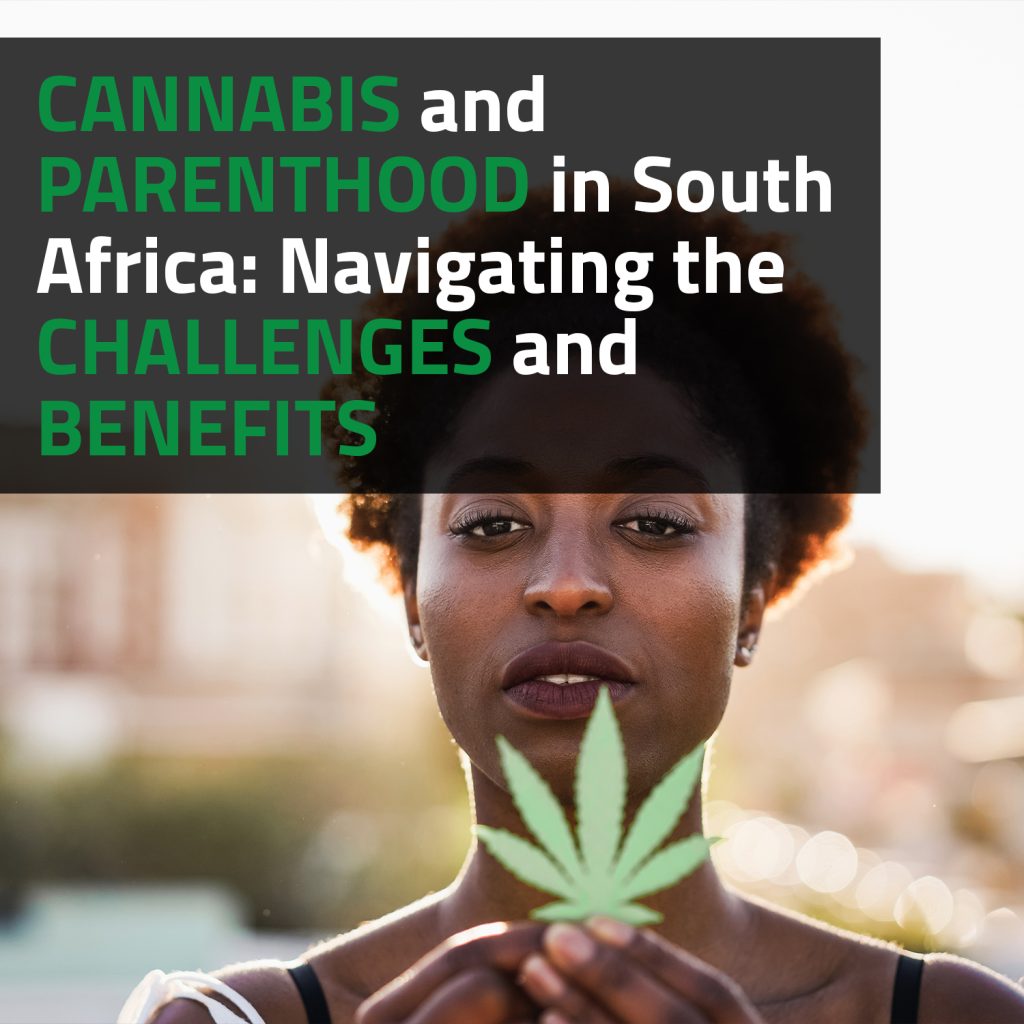In the ever-evolving landscape of cannabis legalisation, South Africa stands at the crossroads of tradition and modernity, challenging societal norms and redefining the contours of parenthood. This article embarks on a journey to explore the complex relationship between cannabis and parenting in the South African context, delving into the nuances of regulations, parental concerns, societal stigmas, and the benefits that cannabis may bring to the realm of raising children.
As we navigate this uncharted territory, we seek to unravel the intricacies, foster informed discussions, and provide a compass for parents, healthcare professionals, and communities alike, in understanding and embracing the dynamic interplay between cannabis and parenthood.
Guidelines For Parents To Ensure A Safe And Responsible Approach
As cannabis becomes an increasingly prevalent part of the cultural and legal landscape in South Africa, parents are faced with the responsibility of navigating its use in a manner that prioritises safety, well-being, and responsible parenting.
Understand Legal Regulations
Stay informed about the current legal status of cannabis in South Africa. While private use and cultivation may be decriminalised, understanding the limitations and regulations is crucial. Avoid engaging in any activities that could lead to legal consequences.
Secure Cannabis Products
Keep all cannabis products securely stored, especially in homes with children. Whether it’s dried flowers, edibles, or tinctures, treating cannabis with the same caution as other potentially harmful substances is essential to prevent accidental ingestion.
Open Communication With Children
Foster an environment of open communication with children about cannabis. As children may encounter varying perspectives from peers and media, being a reliable source of information ensures they make informed choices when faced with potential exposure.
Choose Appropriate Timing
Opt for cannabis use during appropriate times, such as when children are not present or are asleep. This helps maintain a clear distinction between parental responsibilities and recreational or medicinal cannabis use.
Be Mindful Of Secondhand Exposure
Consider the potential impact of secondhand smoke or vapour on children. If cannabis is smoked, do so away from children to minimise their exposure to any potential risks associated with passive inhalation.
Stay Informed About Strain Characteristics
If using cannabis, be informed about the characteristics of different strains. Some strains may have higher THC levels, which could impact cognitive function. Choosing strains with balanced THC and CBD levels may be preferable, especially for those seeking therapeutic benefits.
Exploring Potential Positive Impacts On Stress, Wellness, And Relationships
As the discourse around cannabis evolves, an increasing number of parents in South Africa are exploring the positive impacts of cannabis use on stress, wellness, and relationships. While it’s essential to approach cannabis with a responsible mindset, there is a growing body of anecdotal evidence and preliminary research suggesting that cannabis may offer certain benefits in these domains.
Stress Reduction
Cannabis, particularly strains with higher levels of cannabidiol (CBD), is renowned for its potential to alleviate stress and anxiety. CBD interacts with the endocannabinoid system, modulating neurotransmitter activity and promoting a sense of calm. For parents navigating the demands of daily life, incorporating cannabis responsibly may serve as a stress-management tool.
Wellness Enhancement
Some parents report experiencing a sense of overall well-being with moderate and responsible cannabis use. This may be attributed to the interaction between cannabinoids like CBD and the body’s endocannabinoid system, which plays a role in regulating mood, sleep, and immune function. Cannabis may contribute to a holistic wellness routine that includes physical activity, healthy nutrition, and stress management.
Improved Sleep Patterns
Cannabis, particularly strains with higher levels of the cannabinoid CBN (cannabinol), is often associated with improved sleep. Parents, who frequently contend with disrupted sleep patterns, may find that cannabis helps promote relaxation and contributes to more restful sleep, enhancing overall well-being.
Enhanced Creativity And Relaxation
Some parents report that moderate cannabis use enhances their creativity and relaxation. This may be particularly relevant for parents engaging in creative pursuits or seeking moments of relaxation in the midst of busy schedules. The influence of specific cannabinoids and terpenes on cognitive processes could contribute to these reported effects.
Pain Relief
Parents dealing with chronic pain or discomfort may explore cannabis for its potential analgesic properties. Cannabinoids like THC and CBD have demonstrated anti-inflammatory and pain-relieving effects, offering a potential alternative or adjunct to traditional pain management strategies.
Mindful Parenting
Some parents suggest that cannabis use, when approached mindfully and responsibly, can contribute to a more patient and present parenting experience. This is underscored by the potential stress-relieving effects and the capacity of cannabis to facilitate a calmer and more focused mindset.
It’s important to note that individual responses to cannabis can vary, and what works positively for one person may not for another. Furthermore, the potential benefits should always be weighed against potential risks, and parents should prioritise a safe and responsible approach.
Addressing Common Worries Surrounding Cannabis Use And Parenting
As cannabis becomes a more prevalent aspect of South African culture, parents find themselves navigating a landscape that includes both the benefits and concerns associated with cannabis use. Addressing common worries surrounding cannabis use and parenting is crucial for fostering informed decision-making, promoting responsible use, and dispelling misconceptions.
Parental Judgement
Concern: Parents may worry about potential judgement from others, including family, friends, and the broader community, regarding their cannabis use.
Open communication and education about responsible cannabis use can help counteract stigma. Engaging in supportive communities that share similar perspectives can provide a sense of understanding and solidarity.
Impact On Parental Competence
Concern: Parents may fear that cannabis use could compromise their ability to parent effectively or be perceived as a sign of inadequate parenting.
Responsible use, careful consideration of timing, and self-awareness are key. Parents should assess their own comfort levels, ensuring that cannabis use does not interfere with their capacity to meet their children’s needs.
Child Exposure And Accessibility
Concern: Parents worry about the potential for children to accidentally ingest or be exposed to cannabis products.
Secure storage of cannabis products is essential, treating them with the same caution as other potentially harmful substances. Educating children about cannabis, its uses, and the importance of responsible use is also crucial.
Legal Consequences
Concern: Fear of legal repercussions may deter parents from exploring cannabis, even in regions where personal use is decriminalised.
Staying informed about local regulations, abiding by legal limitations, and being discreet about personal cannabis use can mitigate legal concerns. Understanding the nuances of the law and potential changes is crucial.
Impact On Mental Health
Concern: Parents may worry about the potential impact of cannabis on their mental health, fearing addiction, cognitive impairment, or exacerbation of existing mental health conditions.
Moderation, self-awareness, and seeking professional advice are crucial. Understanding one’s own mental health history and vulnerabilities can guide responsible use.
Social Stigma And Community Perception
Concern: The fear of social stigma and negative perceptions within the community can be a significant worry for parents using cannabis.
Engaging in open conversations about cannabis, sharing experiences, and participating in community dialogues can help reduce stigma and contribute to changing societal perspectives.
Parental Presence And Responsiveness
Concern: Some parents worry that cannabis use might impair their ability to be present and responsive to their children.
Responsible use, particularly choosing appropriate times, can help mitigate this concern. Parents should assess their own reactions to cannabis and prioritise parenting responsibilities accordingly.
In the ever-shifting landscape of cannabis in South Africa, the integration of cannabis into parenthood requires a delicate balance of responsibility, informed decision-making, and expert guidance. As societal attitudes continue to evolve, the discourse around cannabis and parenthood in South Africa emphasises the importance of embracing diversity in parenting choices while prioritising the safety and well-being of children.










